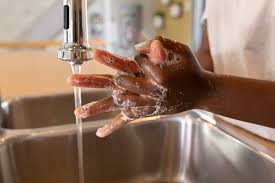Infections are a natural part of life, but in today’s interconnected world, they spread more quickly than ever. From the seasonal flu to global outbreaks like COVID-19, preventing infections has become a top priority for individuals and communities alike. Staying safe from infections is not only about protecting yourself—it’s also about protecting your loved ones and society as a whole.
This article dives into practical strategies, scientific studies, and proven habits to reduce infection risks in daily life. read more: Regular Health Checkups.
Why Infection Prevention Matters
Infections occur when harmful microorganisms like bacteria, viruses, fungi, or parasites invade the body. While some are mild, others can lead to serious illness or even long-term complications.
According to the World Health Organization (WHO), infectious diseases are still among the leading causes of death worldwide, particularly in low- and middle-income countries. Even in developed regions, outbreaks of flu, foodborne illnesses, and resistant bacteria pose significant health challenges.
Common Ways Infections Spread
Understanding how infections travel helps us prevent them more effectively:
- Direct contact: Shaking hands, hugging, or touching infected surfaces.
- Airborne transmission: Breathing in droplets when someone coughs or sneezes.
- Food and water: Contaminated meals or unclean drinking water.
- Animals and insects: Bites from mosquitoes, ticks, or contact with pets.
Practical Tips to Stay Safe from Infections
1. Practice Proper Hand Hygiene for Infections
Washing your hands for at least 20 seconds with soap and water is the simplest yet most effective way to stop germs. The Centers for Disease Control (CDC) estimates that proper handwashing can prevent 30% of diarrhea-related illnesses and 20% of respiratory infections.
2. Strengthen Your Immune System
A strong immune system is your first defense.
- Eat a balanced diet rich in vitamins (C, D, and zinc).
- Stay active with regular exercise.
- Get 7–9 hours of quality sleep.
3. Stay Up to Date with Vaccinations for Infections
Vaccines protect against serious infections like influenza, hepatitis, HPV, and COVID-19. Following your local health authority’s vaccination schedule is key.
4. Use Masks and Maintain Distance When Necessary
During outbreaks, especially of respiratory illnesses, masks and distancing can significantly reduce transmission.
5. Safe Food and Water Practices
- Wash fruits and vegetables thoroughly.
- Cook meat to safe internal temperatures.
- Drink clean, filtered, or boiled water when unsure of quality.
6. Avoid Touching Face Frequently
Germs often enter through the eyes, nose, and mouth. Being mindful reduces risk.
7. Clean and Disinfect Surfaces
Regularly disinfect high-touch areas like door handles, mobile phones, and keyboards.
Real-Life Example
During the COVID-19 pandemic, countries that emphasized hand hygiene, mask-wearing, and vaccinations saw lower infection rates compared to regions with weaker health responses. This demonstrates how small, consistent actions collectively prevent large-scale health crises.
FAQs (Optimized for Voice Search)
Q1: What are the best ways to protect myself from infections daily?
Regular handwashing, balanced diet, vaccinations, and clean surroundings are the most effective.
Q2: Can infections be completely avoided?
Not always, but good hygiene and healthy habits greatly reduce the risks.
Q3: Should I take antibiotics to prevent infections?
No, antibiotics only treat bacterial infections and should be taken only when prescribed by a doctor.
Q4: How can children be protected from infections?
Encourage handwashing, ensure vaccinations, and teach them not to share personal items like bottles or towels.
Conclusion
Staying safe from infections requires awareness, discipline, and small but consistent lifestyle changes. From washing hands to strengthening immunity, each step contributes to long-term protection. With both personal responsibility and community effort, we can reduce the burden of infectious diseases and live healthier, safer lives.








Leave a Reply